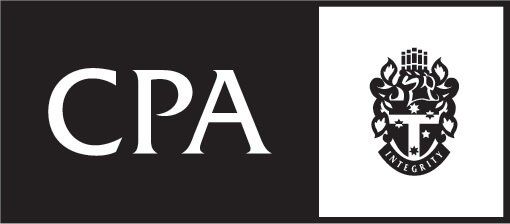Crawford News

ATO's new focus for small business The ATO is currently focusing on the following 'specific risk areas', where it is concerned "small businesses are getting it wrong": Contractors omitting income — with a focus on data matching to ensure all income is reported. Quarterly to monthly BAS reporting for GST purposes — The ATO will move around 3,500 small businesses with a history of non-compliance to monthly reporting from 1 April 2025. The ATO will also continue its focus on non-commercial business losses, small business CGT concessions, business income that is not personal income, incorrect claims for 'small business boosts', GST registration and income of taxi, limousine and ride-sourcing services. Reminder of March 2025 Quarter Superannuation Guarantee Employers are reminded that employee super contributions for the quarter ending 31 March 2025 must be received by the relevant super funds by Monday, 28 April 2025. If the correct amount of SG is not paid by an employer on time, they will be liable to pay the SG charge, which includes a penalty and interest component. The SG rate is 11.5% for the 2025 income year. FBT record keeping and plug-in hybrid exemption changes With the 2025 FBT year having just ended on 31 March, the ATO is reminding employers of some changes that might impact their FBT obligations. Alternative record keeping changes For the 2025 and succeeding FBT years, employers can use existing records instead of travel diaries and declarations for some fringe benefits. If using existing corporate records, employers need to meet the minimum required information at the time of lodging the FBT return. Keeping the right records ensures employers can correctly calculate the taxable value of the benefit and support their FBT position. Plug-in hybrid electric vehicle changes The FBT exemption for plug-in hybrid electric vehicles ('PHEVs') broadly ended on 31 March 2025, so the 2025 FBT year may be the last year that employers can claim the exemption. However, an employer can continue to apply the exemption if that PHEV was used, or available for use, before 1 April 2025 (and that use was exempt), and they have a financially binding commitment to continue providing private use of the vehicle on and after 1 April 2025. Taxable payments annual report lodgment reminder Businesses that pay contractors for Taxable payments reporting system services may need to lodge a Taxable payments annual report by 28 August each year. This includes businesses paying contractors in the building and construction, cleaning and IT industries. From 22 March, the ATO will apply penalties to businesses that have not lodged their TPAR from 2024 or previous years. General transfer balance cap will be indexed on 1 July 2025 The transfer balance cap will increase from $1.9 million to $2 million on 1 July 2025. The general TBC amount is used for a number of purposes, including to determine the total capital amount that can be transferred to the pension phase, and to determine eligibility for making non-concessional contributions. This increase has flow through impacts for individuals who have started a retirement phase pension, as they will be entitled to an increase to their personal TBC if they have not previously been at, or exceeded, their cap. The ATO will calculate an individual's personal TBC based on the information reported to and processed by the ATO. To help individuals have a clear understanding of their position, the ATO encourages funds to report all 'TBC events' when they occur and as early as possible before the 1 July 2025 indexation start date. The information provided in this Newsletter is general in nature and if you have any queries or require further information or assistance with the above, please contact our office.

New tax cuts for individual taxpayers in 2027 and 2028 The individual tax rates will reduce effective 1 July 2026. The current 16% tax rate will be reduced to 15% from 1 July 2026 and will be further reduced to 14% from 1 July 2027. The personal income tax rates (excluding the Medicare levy) for the 2025 and 2026 income years are in the following table, along with the proposed changes to the tax rates for the 2027 and 2028 income years: Australian resident individual tax rates Income threshold Tax Rate 2025 & 2026 2027 2028 $ 0 - $ 18,200 0% 0% 0% $ 18,201 - $ 45,000 16% 15% 14% $ 45,001 - $ 135,000 30% 30% 30% $ 135,001 - $ 190,000 37% 37% 37% $ 190,001+ 45% 45% 45% A taxpayer earning between $18,201 and $45,000 will get a tax cut of up to $268 in the 2027 income year and up to $536 from the 2028 income year. I ncreased Medicare levy thresholds The Medicare levy thresholds were increased from 1 July 2024 per below: No Medicare levy payable below 2024 2025 Individuals $ 26,000 $ 27,222 Families not eligible for SAPTO $ 43,846 $ 45,907 Single individuals eligible for SAPTO $ 41,089 $ 43,020 Families eligible for SAPTO $ 57,198 $ 59,886 For each dependent child or student, the family income thresholds will increase by a further $4,216 up from $4,027. Student loan amendments The government will reduce all outstanding Higher Education Loan Program and other student debts by 20%, subject to the passage of legislation. The 20% reduction is in addition to the recent indexation reforms. The repayment threshold will be increased from $54,435 in the 2025 to $67,000 in the 2026. Energy bill relief Eligible households and small businesses will receive two $75 bill rebates directly off their electricity bills until 31 December 2025. Expansion to Help to Buy scheme for first home buyers Under the Help to Buy scheme, the Government will provide an equity contribution of up to 40% to support eligible home buyers to purchase a home with a lower deposit and a smaller mortgage. The income caps for the scheme will be increased from $90,000 to $100,000 for individuals and from $120,000 to $160,000 for joint applicants and single parents. Small Business and Franchisee Support and Protection The ACCC and ASIC will be funded to: Strengthen regulatory oversight of the Franchising Code of Conduct. Improve its data analytics capability to better target enforcement activities to deter illegal phoenixing activities, particularly in the construction sector. The information provided in this Newsletter is general in nature and if you have any queries or require further information or assistance with the above, please contact our office.

Employer obligations in 2025 Taxpayers who employ staff should remember the following important dates and obligations: Fringe benefits tax 31 March 2025 marks the end of the 2024/25 FBT year. Employers should remember the following regarding their FBT tax time obligations. They should identify if they have provided a fringe benefit. If they have, they should determine the taxable value to work out if they have an FBT liability. They should lodge an FBT return and pay any FBT owed by 21 May 2025. If their registered tax agent lodges electronically for them, they have until 25 June 2025. They should keep the right records to support their FBT position. PAYG withholding Taxpayers need to withhold the right amount of tax from payments they make to their employees and other payees, and pay those amounts to the ATO. Single touch payroll Employers should finalise their STP data by 14 July 2025 for the 2024/25 financial year (there may be a later due date for any closely held payees). Super guarantee 28 January, 28 April, 28 July and 28 October are the quarterly due dates for making SG payments; The SG rate is currently 11.5% of an employee's ordinary time earnings. From 1 July 2025, it will increase to 12% Taxpayers should ensure SG for their eligible employees is paid in full, on time and to the right super fund, otherwise they will be liable for the SG charge. ATO's tips to help taxpayers stay on top of their BAS If lodging online, or through a registered tax or BAS agent, you may be able to get an extra 2 or 4 weeks to lodge and pay. If you have nothing to report for the period, you must lodge a nil BAS. If you made a mistake on your last BAS, instead of lodging a revision, you may be able to use your current BAS to fix it. You can also use their BAS to vary an instalment amount. Claiming fuel tax credits when rates change Fuel tax credits changed on 3 February, and taxpayers could receive more savings for fuel they have acquired on and from this date. Different rates apply based on the type of fuel, when it was acquired and what activity it is used for. The ATO has the following tips for taxpayers to ensure they are claiming correctly. You can use the ATO's 'eligibility tool' on its website to find out if they can claim fuel tax credits for fuel they have acquired and used. You can use the ATO's online fuel tax credit calculator to work out their claim. ATO "busts" NFP myths As the Not-for-profit self-review return is due in March, the ATO has recently published a document 'busting' various NFP 'myths'. Myth 1: All NFPs are income tax exempt ATO response: This is not true. Some NFPs are income tax exempt and some are taxable. Myth 2: There is only one way to lodge the NFP self-review return ATO response: There are three ways, as follows: A 'principal authority' may be able to lodge using 'Online services for business'; It may be possible for the return to be lodged by phoning the ATO's automated self-help phone service on 13 72 26; and A registered tax agent can lodge the return through Online services for agents. Myth 3: Anyone can lodge the NFP self-review return online ATO response: If lodging via Online services for business, anyone authorised to access the return in Online Services can lodge. If a registered tax agent has been engaged, they can also prepare and lodge the return in Online services for agents. Myth 4: If a person is unsure whether their NFP has charitable purposes, then they do not need to lodge ATO response: The self-review return still needs to be lodged, even if it is not certain whether the NFP is charitable. Taxpayer's claim for input tax credits unsuccessful In a recent decision, the Administrative Review Tribunal rejected a taxpayer's claim for input tax credits on the basis that all the relevant GST returns (i.e., BASs) were lodged out of time. For the GST periods from 1 October 2015 to 31 March 2017, the taxpayer filed each of her GST returns more than four years after they were due. The taxpayer still claimed input tax credits totalling over $10,000 for this period. The ATO disallowed this claim, on the basis that none of the input tax credits were claimed within the four year period, as required by the GST Act. The ART upheld the ATO's decision, noting that, as the taxpayer did not file the GST returns within the four year period. ATO's appeal against decision that UPEs are not "loans" The Full Federal Court recently dismissed the ATO's appeal against an AAT decision that unpaid present entitlements ('UPEs') owing by a trust to a corporate beneficiary were not "loans" for Division 7A purposes. A corporate beneficiary had become entitled to a share of the income of a trust for the 2013 to 2017 income years. Parts of these entitlements remained outstanding, resulting in UPEs. The ATO treated these UPEs as loans from the corporate beneficiary back to the trust and, in consequence, as "deemed dividends" made to the trust. The AAT held at first instance that a loan had not been made in this case. The Full Federal Court upheld the AAT's decision, noting that a loan for Division 7A purposes requires an obligation to repay an amount, not merely the creation of an obligation to pay an amount such as when a trust distributes income to a beneficiary. The information provided in this Newsletter is general in nature and if you have any queries or require further information or assistance with the above, please contact our office.

CGT withholding measures now law The Government recently passed legislation making changes to the foreign resident capital gains withholding laws (among other changes). Foreign resident capital gains withholding is relevant for all vendors selling certain taxable real property (e.g., Australian land). Even Australian residents can be caught by these laws because, if they do not have a valid 'clearance certificate' issued by the ATO at, or before settlement, tax must be withheld from the sale proceeds by the purchaser and paid to the ATO. The new legislation increases the foreign resident capital gains withholding rate to 15% (from 12.5%), and completely removes the threshold (currently $750,000) before which withholding applies. This means that all disposals of taxable real property are potentially subject to foreign residents' capital gains withholding requirements regardless of the market value of the CGT asset. These amendments take effect from 1 January 2025. ATO's notice of rental bond data-matching program The ATO will acquire rental bond data from State and Territory rental bond regulators bi-annually for the 2024 to 2026 income years, including details of the landlord and tenant, managing agent identification details, and rental bond transaction details. The objectives of this program are to identify and educate individuals and businesses who may be failing to meet their registration or lodgment obligations. The ATO expects to collect data on approximately 2.2 million individuals each financial year. Study/training loans — What's new The indexation rate for study and training loans is now based on the Consumer Price Index or Wage Price Index — whichever is lower. This change has been backdated to indexation applied from 1 June 2023 for all HELP, VET Student Loan, Australian Apprenticeship Support Loan, and other study or training support loan accounts. Consequently, indexation rates for 2023 and 2024 have changed to: 3.2% for 1 June 2023 (reduced from 7.1%); and 4% for 1 June 2024 (reduced from 4.7%). Individuals who had a study loan that was indexed on 1 June 2023 or 1 June 2024 do not need to do anything. Individuals whose study loan is in credit after the adjustment may receive a refund for the excess amount to their nominated bank account, if they have no outstanding tax or Commonwealth debts. When to lodge SMSF annual returns All trustees of SMSFs with assets as at 30 June 2024 need to lodge an SMSF annual return for the 2023/24 financial year. The SAR is more than a tax return — it is required to report super regulatory information, member contributions, and pay the SMSF supervisory levy. However, not all SMSFs have the same lodgment due date: Newly registered SMSFs and SMSFs with overdue SARs for prior financial years (excluding deferrals) should have lodged their SAR by 31 October 2024. All other self-preparing SMSFs need to lodge their SAR by 28 February 2025 (unless the ATO has asked them to lodge on a different date). For SMSFs that lodge through a tax agent, the due date for lodgment of their SAR is generally 15 May or 6 June 2025. SMSFs that have engaged a new tax agent need to nominate them to confirm they are the authorised representative for the fund. SMSF trustees must appoint an approved SMSF auditor no later than 45 days before they need to lodge their SAR. Before they lodge, they must ensure that their SMSF's audit has been finalised and the SAR contains the correct auditor details. The information provided in this Newsletter is general in nature and if you have any queries or require further information or assistance with the above, please contact our office.

Can staff celebrations attract FBT With the holiday season coming up, employers may be planning to celebrate with their employees. Before they hire a restaurant or book an event, employers should make sure to work out if the benefits they provide their employees are considered entertainment-related, and therefore subject to fringe benefits tax ('FBT'). This will depend on: the amount they spend on each employee; when and where the celebration is held; who attends — is it just employees, or are partners, clients or suppliers also invited? the value and type of gifts they provide. Employers who do provide entertainment-related fringe benefits should keep records detailing all of this information so they can calculate their taxable value. Reminder of December 2024 Quarter Superannuation Guarantee Employers are reminded that employee superannuation contributions for the quarter ending 31 December 2024 must be received by the relevant super funds by 28 January 2025. If the correct amount of SG is not paid by an employer on time, they will be liable to pay the SG charge, which includes a penalty and interest component. The SG rate is 11.5% for the 2025 income year. SMSFs cannot be used for Christmas presents There are very limited circumstances where taxpayers can legally access their super early. Generally, taxayers can only access their super when they: reach preservation age and 'retire or turn 65 (even if they are still working) To access their super legally before then, taxpayers must satisfy a 'condition of release'. SMSF members who illegally access their benefits may be liable for additional income tax and administrative penalties, and they could be disqualified as a trustee. For taxpayers who have illegally accessed their super, returning it to the fund may be considered a new contribution. Depending on their contribution caps, this may result in additional tax on excess contributions. Taxpayer’s claims for various home business expenses rejected In a recent decision, the AAT rejected in full a taxpayer's claims for "several classes or categories of deductions." For the relevant period of 1 July 2021 to 30 June 2022, the taxpayer was (according to his employer) a 'technical architect'. However, the taxpayer also claimed he worked from home 6 am to 11 pm seven days a week, 365 days of the year (as he was ‘always on call’), and his income tax return for the 2022 financial year claimed a wide range of deductions, totalling approximately $40,000. The AAT separately considered each category of deductions claimed, and rejected each in turn. In relation to his home office 'occupancy expenses' (e.g., for home insurance, council rates, waste disposal, water rates, and repairs), the AAT noted that the 'home office' rooms (comprising floorspace occupying 31% of the dwelling’s total floor area) were not physically separate from the remainder of the dwelling, which the taxpayer shared with four other members of his family. Home office running expenses (e.g., gas, power and internet) were disallowed on the grounds that the taxpayer had "not properly established an entitlement to such deductions or otherwise appropriately apportioned them between private or work-related activities." The AAT found his 100% claim for the internet, on the basis that the other members of the household did not use the internet connection, "very difficult to accept". In relation to plant and equipment expenses, the evidence was "largely non-existent." In relation to consumable expenses, the AAT noted that they appeared to be for goods or services of a private or domestic nature (including medications, toilet paper, milk, tea, sugar and insect spray). The AAT also rejected the taxpayer's claim for "payments made to his spouse for tax management, office cleaning and document management/storage", noting that the services provided were generally of a private or domestic nature, and that the rendering of invoices by the spouse "has a degree of artificiality to it". ATO reminder about family trust elections Making an FTE provides access to certain tax concessions (assuming the relevant tests and conditions are satisfied), although there are important things to consider. In particular, once the election is in effect, family trust distribution tax ('FTDT') is imposed when distributions are made outside the family group of the 'specified individual'. FTDT is a 47% tax, payable by a trustee, director, or partner, as the case may be (depending on the entity). Taxpayers should review FTEs and IEEs annually to ensure they remain appropriate. Taxpayers can only revoke or vary FTEs and IEEs in limited circumstances and subject to certain conditions. Before making a distribution or annual trust resolutions, trustees should identify the members of the specified individual's family group. This will help avoid FTDT liabilities. The information provided in this Newsletter is general in nature and if you have any queries or require further information or assistance with the above, please contact our office.

Hiring employees for the festive season As the festive season approaches, employers that hire new employees to help with their business should remember the following when it comes to their employer tax and super obligations: Employers should make sure they are withholding the right amount of tax from payments they make to their employees and other payees, especially as this will help their employees meet their end-of-year tax liabilities; Employers must pay super guarantee (currently at 11.5%) to all eligible employee's super funds in full and on time to avoid paying the super guarantee charge; and If employers are still not reporting through single touch payroll ('STP') and they do not have an approved exemption, deferral or concession in place, they should start reporting now. If they have just started a business or recently employed staff, they will need to report through STP from their first payday. Lodging and paying business activity statements The ATO is reminding taxpayers that it is important to lodge BASs and pay in full and on time to avoid penalties and interest charges. The BAS for the first quarter of 2024/25 is generally due on 28 October, but taxpayers will receive an extra: four weeks if they lodge through a registered tax or BAS agent; or two weeks if they lodge online. The cost of managing tax affairs is tax deductible for taxpayers, and a registered agent's help will allow them to focus on running their business. Deductions for financial advice fees The ATO has provided guidance about when an individual not carrying on an investment business may be entitled to a deduction for fees paid for financial advice. An individual is entitled to a deduction for fees for financial advice to the extent that the loss or outgoing is incurred in gaining or producing assessable income, unless the loss or outgoing is of a capital, private or domestic nature. Fees for financial advice an individual incurs may also be deductible to the extent that the advice relates to managing their 'tax affairs' (e.g., fees for advice in relation to salary sacrifice arrangements). However, fees for financial advice on a proposed investment prior to the acquisition of an asset, or about how to invest additional funds to grow an investment portfolio, will not be deductible. The individual must also have sufficient evidence of the expenditure to claim the expense as a deduction, such as a properly itemised invoice. ATO's notice of government payments data-matching program The ATO will acquire government payments data from government entities which administer government programs for the 2024 to 2026 income years, matching data on government payments made to service providers against ATO records, including service provider identification details and payment transaction details. The ATO estimates that records relating to approximately 60,000 service providers will be obtained each financial year, including approximately 9,000 individuals, with the remainder consisting of companies, partnerships, trusts and government entities. FBT on plug-in hybrid electric vehicles From 1 April 2025, a plug-in hybrid electric vehicle will not be considered a zero or low emissions vehicle under fringe benefits tax law and will not be eligible for the electric car FBT exemption. However, an employer can continue to apply the electric car exemption if: use of the PHEV was exempt from FBT before 1 April 2025; and they have a financially binding commitment to continue providing private use of the vehicle to an employee or their associate on and after 1 April 2025 (note that any optional extension of the agreement is not considered binding). If there is a change to a pre-existing commitment on or after 1 April 2025, the FBT exemption for the PHEV will no longer apply from the date of that new commitment. An employer is not entitled to an exemption from FBT after 1 April 2025 if there was no binding financial commitment to provide the car to a particular employee in place before then. Eligibility for compassionate release of superannuation The ATO has been responsible for the administration of the early release of superannuation on compassionate grounds since 1 July 2018. It will only approve a release of superannuation on compassionate grounds if the applicant meets all the conditions set out in the regulations, including that the applicant has no other means to pay the expenses. The five main grounds of eligibility are: medical treatment or transport (i.e., to treat a life-threatening illness or injury, or alleviate acute or chronic pain or mental illness) for the applicant or their dependant; accommodating a disability for the applicant or their dependant; palliative care for a terminal illness for the applicant or their dependant; funeral expenses for a dependant of the applicant; or preventing foreclosure or forced sale of the applicant's home. The information provided in this Newsletter is general in nature and if you have any queries or require further information or assistance with the above, please contact our office.

Avoid a tax time shock Individual taxpayers can take the following steps to ensure the correct amount of tax is being put aside throughout the year: Let your employer know if you have a student loan, such as a HECS or HELP debt Check you are only claiming the tax-free threshold from one employer Consider whether the Medicare Levy Surcharge may affect you this financial year Check your income tier is correct for your private health insurance rebate Consider voluntarily entering PAYG instalments and pre-paying tax throughout the year to avoid a large tax bill at tax time for investment or business income Reminder of September Quarter Superannuation Guarantee Employers are reminded that employee super contributions for the 1 July 2024 to 30 September 2024 quarter must be received by the relevant super funds by 28 October 2024 in order to avoid being liable to pay the SG charge. myGovId changing its name to myID The digital identity app 'myGovID' will soon be changing its name to 'myID'. While the name is changing, the login and security will not change. Taxpayers who have already set up their myGovID and use it to access government online services will not need to do anything when the app changes to myID. They will still have: The same details — there is no need to set up a new myID. Your login details and identity strength remain the same Continued use — once available your existing app should automatically update to myID or they can manually update it from the APP Store or Google Play Access to services — You can still use the app to securely access government online services. The new name aims to reduce the confusion between myGovID and myGov. ATO security safeguards for victims of fraud recently enhanced Where a taxpayer has been the victim of identity, tax or super fraud, the ATO may apply security safeguards to their account to prevent further harm. This may require the impacted taxpayer to contact the ATO each time they need to access their information and cause inconvenience for the taxpayer as well as their tax agents. The ATO has recently enhanced processes to improve ongoing access to ATO online services. Impacted taxpayers must contact the ATO for initial access and then set a Strong online access strength. To set a Strong online access strength, taxpayers need to: Set up your myGovID to a Strong identity strength using their Australian passport; Connect your myGovID to their myGov account; Sign in to myGov with your myGovID; and Go to ATO online services. Once set, taxpayers no longer need to contact the ATO every time they access their information. Impacted taxpayers must continue to use their Strong myGovID whenever they access ATO online services, or account access will be restricted to maintain ongoing protection of client information. Valuing fund assets for SMSFs One of the many responsibilities SMSF trustees have every income year is valuing their fund's assets at market value. The market value of an asset is the amount that a willing buyer and seller would agree to in an arm's-length transaction. These valuations will be used when preparing the fund's accounts, statements and SMSF annual return. Asset valuations will be reviewed by an approved SMSF auditor as part of the annual audit prior to lodgment of the SAR. The auditor will check that assets have been valued correctly and assess and document whether the basis for the valuations is appropriate given the nature of the asset. The auditor is not responsible for valuing fund assets. Taxpayers should ensure that they have their valuations done before going to the auditor. It is the responsibility of the SMSF trustee to provide objective and supportable evidence to their auditor for the valuation of the fund's assets, including all relevant documents requested to prevent delays in auditing the fund. Failure to do so could result in a potential late lodgment of their annual return or a contravention if mistakes have been made. SMSF trustees should start researching now to find what type of evidence they need to support the valuation as this can take time. For some asset types valuations must be undertaken by a qualified independent valuer. The information provided in this Newsletter is general in nature and if you have any queries or require further information or assistance with the above, please contact our office.

Pre filling information is now updated With millions of pieces of information now pre-filled, including information from banks, employers, government agencies and private health insurers, the ATO has given the 'green light' to lodge your tax returns. The ATO reminds taxpayers that the rules regarding how and when you can claim a deduction can change, including in relation to car expenses and working from home costs. Therefore, you should not just 'copy and paste' your deductions from last year, and speak with our accountants for your claims. The ATO notes that taxpayers using a registered tax agent normally have the extended due dates. Business self-review checklist: GST classification of products GST classification errors can lead to significant under-reporting of GST for some taxpayers. The ATO recently issued guidance for small to medium businesses on self-reviewing GST classification of food and health products. The use of this guide is not mandatory, although the ATO encourages small to medium businesses to regularly self-review the GST classification of supplies, and adopt better practice processes and controls as listed in the accompanying checklist. The checklist provides practical, step-by-step guidance for entities to: self-review the GST classification of their supplies (products they import, purchase as stock or produce for sale); and assess the robustness of their business systems, processes and controls that directly impact their GST classification systems. Small business food retailers with turnover of $2 million or less may use one of the 'GST simplified accounting methods' to account for GST instead. Receiving payments or assets from foreign trusts Additional tax liabilities may arise when money or assets of a foreign trust are paid to a taxpayer or applied for their benefit, and they are a beneficiary of the foreign trust. These can include: loans to them by the trustee directly or indirectly through another entity; amounts paid by the trustee to a third party on their behalf; amounts that are described as gifts from family members, but are sourced from the trust; and distributions paid to them or trust assets transferred to them by the trustee. Taxpayers who receive money from a foreign trust may need to ask further questions to determine whether the amount must be included in their assessable income, including: whether they are a beneficiary of the foreign trust; where the foreign trust obtained the money; and why the money was paid to them, e.g., is it a payment for services, a gift, a distribution or a loan. Record keeping for work-related expenses Taxpayers need to consider what work-related expenses they will be looking to claim in the new financial year, and what records they will need to substantiate those deductions. Records can be kept as a paper version, an electronic copy, or a 'true and clear' photo of an original record. Working from home deductions Taxpayers can use two different methods to calculate their working from home deductions, and they each have different requirements: With the fixed rate method, taxpayers will need a record of the actual number of hours they worked from home for the whole financial year, and at least one record for each of the additional running expenses they incurred that the rate includes (e.g., an electricity bill). To use the actual cost method, taxpayers must also keep records for any additional running expenses they incurred, and the depreciating assets they bought and used while working from home, and show how they apportioned work-related use for their expenses and depreciating assets. Please contact our office if you need any assistance with your record keeping requirements, such as logbook requirements for car expenses. Tax incentives for early stage investors The ATO is reminding investors who purchased new shares in a qualifying 'early stage innovation company that they may be eligible for tax incentives. These tax incentives provide eligible investors who purchase new shares in an ESIC with: a non-refundable carry forward tax offset equal to 20% of the amount paid for their eligible investments – this is capped at a maximum tax offset amount of $200,000 for the investor and their affiliates combined in each income year; and modified capital gains tax ('CGT') treatment, under which capital gains on qualifying shares that are continuously held for at least 12 months and less than 10 years may be disregarded – capital losses on shares held less than 10 years must be disregarded. The maximum tax offset cap of $200,000 does not limit the shares that qualify for the modified CGT treatment. The information provided in this Newsletter is general in nature and if you have any queries or require further information or assistance with the above, please contact our office.


